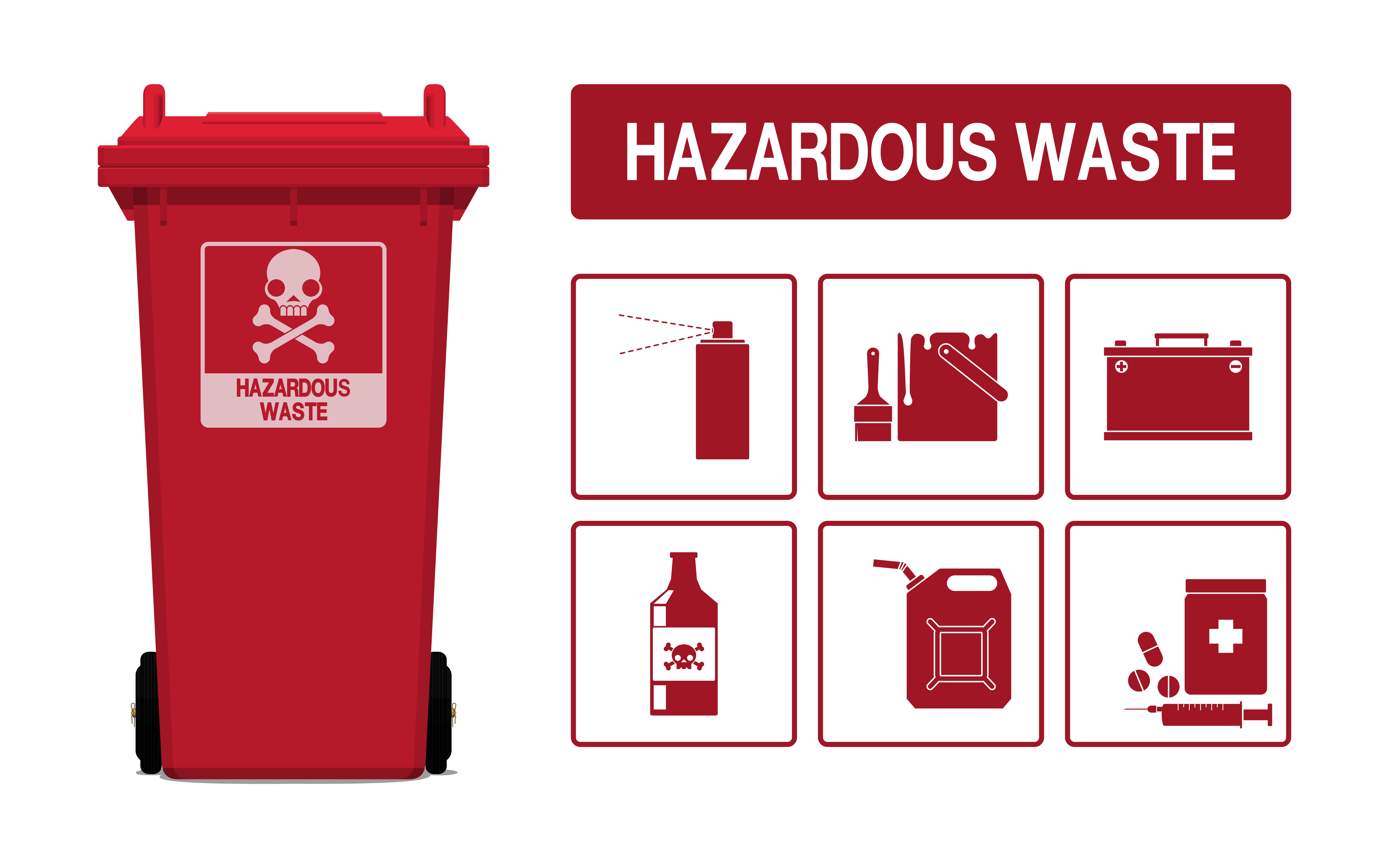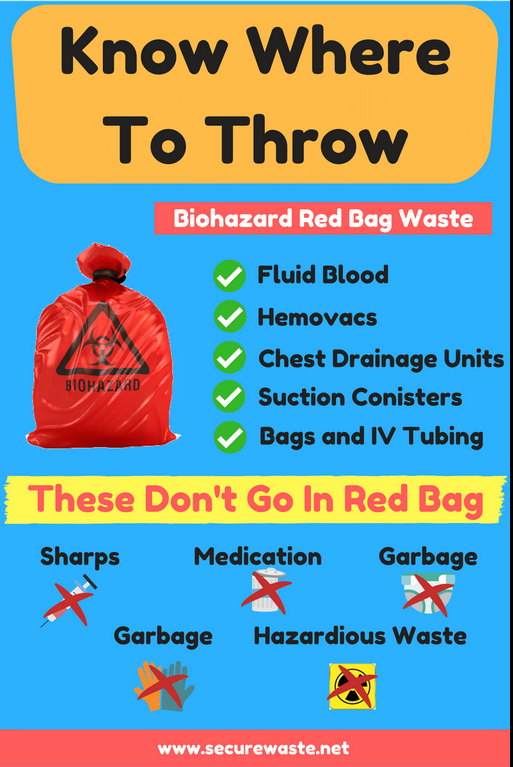Proactive Health And Wellness Solutions: Selecting the very best Medical Waste Removal Near You
Proactive Health And Wellness Solutions: Selecting the very best Medical Waste Removal Near You
Blog Article
Keep Ahead of Regulations: Professional Suggestions on Medical Garbage Disposal
In a world where the health care sector is constantly developing, it is imperative for medical facilities to stay in advance of guidelines when it involves the proper disposal of medical waste. With stringent guidelines and constant governing adjustments, it can be testing to browse the intricacies of this process. With experienced advice, facilities can guarantee compliance and mitigate risks linked with improper waste disposal. From understanding the various groups of clinical waste to carrying out the best collection and segregation techniques, this discussion will certainly give actionable tips and beneficial understandings to assist facilities remain ahead of regulations in the ever-changing landscape of clinical garbage disposal.
Understanding Medical Waste Categories
Comprehending medical waste classifications is essential for proper disposal and management in healthcare centers. Medical waste describes any kind of waste created by health care tasks that might pose a hazard to public wellness or the environment. It is important to classify medical waste properly to ensure its secure handling, therapy, transportation, and disposal.
There are numerous categories of medical waste that health care centers require to be knowledgeable about. One of the most typical groups include contagious waste, pathological waste, sharps waste, pharmaceutical waste, and chemical waste. Each group has details guidelines and laws for its appropriate administration and disposal.
Infectious waste consists of materials infected with blood or various other bodily fluids, such as handwear covers, dress, and laboratory cultures. Pathological waste refers to human cells, body organs, or body components that require special delivery and disposal. Sharps waste includes made use of needles, syringes, and various other sharp objects that can cause injury and send infections. Drug waste comprises expired, extra, or contaminated drugs that need cautious handling and disposal. Lastly, chemical waste consists of solvents, disinfectants, and other chemical compounds utilized in medical care centers.
Remaining Up-To-Date With Regulatory Changes
Staying current with governing changes is vital for health care centers to guarantee compliance and appropriate management of clinical waste disposal. medical waste removal services. With policies regularly developing, it is vital for healthcare facilities to remain up-to-date to avoid charges, penalties, and possible harm to the setting and public wellness
To stay ahead of regulatory changes, healthcare facilities should develop a system for monitoring and monitoring updates. This can be done by signing up for regulatory newsletters, attending workshops and conferences, and actively taking part in sector organizations. Furthermore, centers need to designate a team member or group in charge of staying informed and distributing info to pertinent stakeholders.
Routine communication with regulative companies is additionally crucial. Medical care facilities ought to develop partnerships with regional, state, and federal companies to ensure they are aware of any modifications in policies that might influence their waste monitoring techniques. This can be done with regular conferences, engagement in public remark durations, and positive interaction with regulative firms.
Moreover, medical care centers must think about partnering with waste monitoring business that specialize in clinical waste disposal (medical waste disposal services with WasteX). These business are typically skilled in the most up to date regulations and can offer assistance and support to make certain conformity
Applying Proper Collection and Partition Methods
To effectively take care of medical waste disposal, healthcare facilities have to develop proper collection and segregation approaches according to regulatory guidelines. Implementing these techniques makes certain the secure handling and disposal of possibly unsafe materials, shields the environment, and minimizes the threat of infections and injuries to health care workers and the public.
Correct collection and partition techniques involve the use of designated containers and identifying systems. Health care centers should supply clearly labeled containers for different kinds of clinical waste, such as sharps, infectious waste, pharmaceutical waste, and non-hazardous waste. These containers must be color-coded and clearly marked to prevent complication and promote easy recognition.
Additionally, healthcare facilities should educate their personnel on the appropriate procedures for gathering and setting apart medical waste. This consists of educating them on the different sorts of waste, the suitable containers to use, and the value of adhering to guidelines and guidelines. Normal training sessions and refresher programs need to be conducted to make certain that personnel stay updated on ideal practices.
In addition, healthcare centers must establish a system for routine collection and disposal of clinical waste. This might involve partnering with licensed waste monitoring firms click here for info that specialize in medical garbage disposal. These firms will make sure that the collected waste is transported and disposed of in compliance with regulative demands.
Selecting the Right Disposal Methods

Incineration is one of the most common and efficient approaches for getting rid of particular kinds of medical waste, such as pathological waste and sharps. It includes the regulated combustion of waste at heats, decreasing it to ash. Nevertheless, incineration can launch harmful pollutants right into the air and contribute to air contamination.

Various other disposal methods include chemical treatment, microwave therapy, and landfilling. Chemical treatment involves using chemicals to decontaminate and counteract the waste. Microwave treatment utilizes microwave power to warm and sanitize the waste. Landfilling includes burying the waste in an assigned land fill area (medical waste disposal services with WasteX). Landfilling must be the last resort due to the possible risk of contamination to soil and groundwater.
Making Sure Conformity Through Paperwork and Training
After meticulously considering the suitable disposal approaches for clinical waste, healthcare centers must make sure conformity with policies and lessen environmental impact by carrying out reliable paperwork and training procedures. This step is essential in maintaining a risk-free and sustainable setting for both healthcare workers and the public.

Health care employees who handle medical waste ought to receive wikipedia reference proper training on waste segregation, handling, and disposal procedures. By giving extensive training, healthcare centers can equip their personnel to make educated choices and lessen the risk of incorrect waste disposal.
Final Thought
Finally, staying ahead of policies in medical garbage disposal is important for health care facilities. medical waste removal. Comprehending the different groups of medical waste, remaining updated with regulative adjustments, carrying out proper collection and partition approaches, selecting the appropriate disposal techniques, and ensuring compliance via paperwork and training are all necessary steps. By adhering to these guidelines, medical care organizations can efficiently get rid of and manage of medical waste in a safe and accountable way
From understanding the different classifications of clinical waste to implementing the appropriate medical waste disposal services with WasteX collection and partition techniques, this discussion will offer beneficial insights and actionable pointers to aid centers remain ahead of laws in the ever-changing landscape of medical waste disposal. - medical waste disposal services with WasteX
The most common classifications consist of contagious waste, pathological waste, sharps waste, pharmaceutical waste, and chemical waste. Medical care facilities ought to supply plainly identified containers for different types of clinical waste, such as sharps, contagious waste, pharmaceutical waste, and non-hazardous waste. Health care centers need to develop a thorough system to videotape and track all elements of medical waste disposal, consisting of types of waste generated, amounts, and disposal methods used. Medical care workers who take care of medical waste should receive ideal training on waste partition, taking care of, and disposal treatments.
Report this page